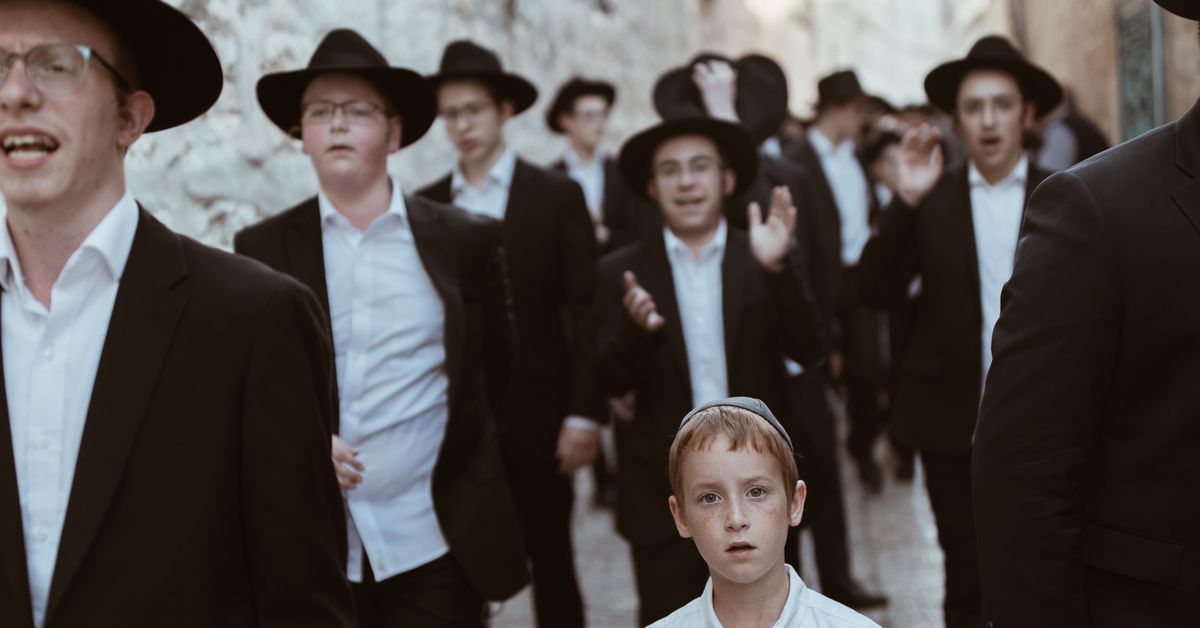
When I reached out to Tzippy Yarom-Diskind last week, she was awake at 3:30 a.m. Jerusalem time, working on constructing a website to lend visibility to women like her: proud Orthodox Jewish women. What was the motivation? Diskind is part of a larger effort providing a voice to these women as a response of sorts to a new Netflix program called “My Unorthodox Life,” featuring a woman, Julia Haart, who left the Orthodox community of Monsey, New York, declaring it “fundamentalist.” Haart left Orthodoxy, but Diskind wants to show the women who have happily stayed behind; women who have entered the faith and those who were born into it.
Diskind explained to me why she and so many other Orthodox women are sharing their stories about how they can be both religious and empowered. She said, “People are talking above our heads for a long time. There were several times in the past years that we felt like we are, unjustly, portrayed as “oppressed,” as if we can’t think for ourselves, as if we are not successful human beings: wives, mothers, business women, who can definitely think for ourselves, as if everything we do is because we are compelled to do so. So the Netflix show is just the last straw — but it was the trigger.”
In a review of the series, the Jewish Telgraphic Agency explains the origins of the title, which has become popular subject matter for Netflix: “The title ‘My Unorthodox Life’ pays homage to the company’s 2020 Emmy-winning hit ‘Unorthodox,’ a series loosely based on the 2012 bestselling memoir by Deborah Feldman, who left the Hasidic community after marrying at 17 and having a son. That show was preceded by ‘One of Us,’ a 2017 documentary following the lives of three formerly Hasidic Jews, one of whom grapples with the aftermath of sexual abuse, as they struggle to acclimate to the challenges of their new lives.”
All of these shows highlight the decision to leave traditional observance. But that left some wondering: Instead of only highlighting those who leave, what about a show that shows an equally compelling and common decision to enter it?
Orthodox Judaism, the most strict form of Judaism, is growing. Reporting on the most recent large survey of Judaism last year, the Wall Street Journal explained, “The study by the Pew Research Center found that the Jewish population in the U.S. has grown to about 7.5 million, up from about 6.4 million in 2013, when the organization conducted a similar survey. But the Reform and Conservative branches of Judaism, which were long the dominant Jewish movements in the U.S., show signs of hollowing out.”
It’s not just more strict forms of Judaism attracting new and younger adherents. In response to a new papal decree issued last week restricting the more conservative Latin Mass, young Catholics drawn to the faith by the more traditional aspect of it were up in arms in its defense. Many described the popularity of the traditional service among young families and new converts and beautifully explained why it was so appealing:
FWIW seeing a tridentine mass in 2015 was a significant catalyst in my conversion. It offered the type of beauty and transcendence I just wasn't seeing in the world or the previous protestant services I attended.
— Sam Dorman (@DormanInDc) July 16, 2021
Those anecdotal stories fit with research conducted about the popularity of the Latin Mass. While church attendance is down among all Catholics, especially millennials and below, the Latin Mass is the exception, with 98% of its attendees members of the millennial or younger generations.
In a world devoid of depth and purpose, young people are drawn in increasing numbers to that which is ancient and meaningful. Whereas religion and faith are shrinking in America and across the Western world, more traditional forms of faith are growing and adding adherents. Despite the fact that conservative faiths demand a great deal of observance in exchange for entry, young people are willing to take that commitment on in exchange for the substance traditional faith offers.
It’s a fascinating story that isn’t being told by our entertainment establishment, and the question is, why? The most cynical answer is the easiest: It’s just not a story they want to tell. It’s far more salacious to depict religion as a cult instead of a complementary component of millions of families’ lives across the country and across the world. The entertainment world doesn’t want to highlight a family that has chosen to enter into traditional faith; nor do they want to feature a large family that isn’t as flawed as the Duggars. None of that fits the negative narrative they want to set about traditional faith or large families, and so, it’s a story that won’t be told. They choose instead to sensationalize and dramatize these countercultural conservative lifestyles, blurring the lines between fiction and reality on these so-called reality shows. Their agenda is clear, and it’s refreshing to see the objects of their derision fighting back.
Bethany Mandel is a contributing writer for Deseret News, editor at Ricochet.com and a contributor to the Washington Examiner blog and magazine.
"traditional" - Google News
July 22, 2021 at 01:24AM
https://ift.tt/3iBUzWe
‘My Unorthodox Life’ gets it wrong — traditional faith is strong | Opinion - Deseret News
"traditional" - Google News
https://ift.tt/36u1SIt
Shoes Man Tutorial
Pos News Update
Meme Update
Korean Entertainment News
Japan News Update
Bagikan Berita Ini














0 Response to "‘My Unorthodox Life’ gets it wrong — traditional faith is strong | Opinion - Deseret News"
Post a Comment